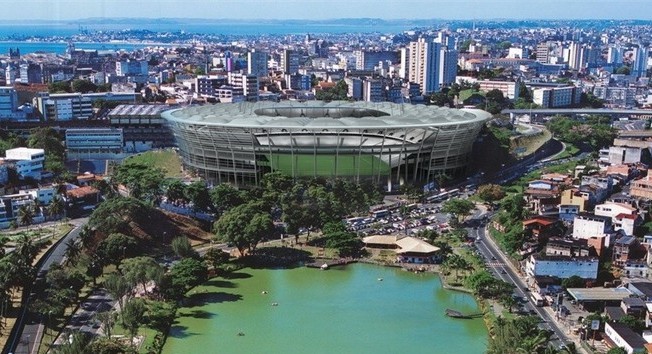Why Buy Property in Brazil?
Updated April 2013
Tourism is a popular industry in Brazil, with the country hosting no less than 4.8 million visitors in 2009, and the property market is proving to be just as popular. And, despite being rather new on the international property-buying radar, this South American country seems to be ticking all of the right boxes for investors, holiday homers and retirees alike. A diverse landscape, rich culture, idyllic climate and affordability are just some of the reasons why British buyers have started flocking here – but property prices are the reason they are staying.
While the initial flood of interest in property in Brazil was from the investment market, buyers are now seriously looking for holiday homes and potential retirement destinations for the future as flight connections from the UK continue to improve. The flight takes around 11 hours though, so Brazil is not a destination to consider if you are after a weekend bolt-hole.
Though the Brazilian economy itself has been relatively well-managed, leaving the country with some currency reserves as the government saved during the good times, the effects of the global recession are still being felt. Association with US and other international businesses has hurt the economy, though certainly not to the same extent it has elsewhere in the world.
When the Portuguese crown first decided to carry out the endeavour of colonising Brazil, the first urban area to be settled in was Salvador, which was established on 29 March 1549. This is one of the reasons why the coastal city in the country’s north-east was one of the main poles of slave trade in South America. As a consequence, Salvador grew under deep influence of Portuguese, Afro-descendents and indigenous alike: a situation that contributed to the cultural richness that typifies the city today.
The presence of African elements is all around in Salvador, from the circles of capoeira (a combination of martial art and dance brought to Brazil by African slaves) at the Modelo Martket to the beat of the agogôs and atabaques (percussion instruments) in the rites of the Candomblé – a syncretic religion conceived in Brazil. Such African heritage has awarded Salvador with the nickname Roma Negra (Black Rome).
Salvador’s privileged topography is one of its most appealing attributes, with a clear division between the Cidade Baixa and Cidade Alta (Low City and High City), both of which are connected to each other by one of the city’s most important sights, the Elevador Lacerda. But the ultimate icon of the city is thePelourinho, which is its historical centre: its churches and colourful colonial buildings have been a World Heritage Site by UNESCO in 1985.
Besides being a historical gem and the birthplace of several of Brazil’s most significant artists, the capital of the state of Bahia has also grown and developed to become the economic centre in the north-east and the country’s third-most populous city, with roughly three million residents.
Football
It comes as a surprise to no-one after an edition of the Campeonato Brasileiro when the figures show that a team from Salvador – either Esporte Clube Bahia or Esporte Clube Vitória – topped the attendance average charts. The soteropolitanos are as mad about football as anyone else in Brazil.
The two rivals comfortably dominate the football scene within the state of Bahia, and have an important national background as well: Bahia, the Tricolor, won the Campeonato Brasileiro in 1988 and the Taca Brasil in 1959 (a predecessor of the national championships), while Vitória have collected three North-east Cup titles and were runners-up in the Brasileiro in 1993. The Leão are also famous for housing one of the best youth academies in the country, having produced the likes of FIFA World Cup™ champions Bebeto and Dida.
One of the most fantastic moments for one to be in Salvador – only comparable to the city’s vivacious Carnival celebrations – is during a Ba-Vi, the famous derby between the two rivals. While Vitoria owns the Barradão and EC Bahia plays its home matches at state-owned Pituaçu, the ultimate stage for big matches at the state of Bahia is the Fonte Nova, which has been closed since 2007. The former stadium was imploded and a brand new one is being built upon the same ground to host the FIFA World Cup.
Check this video about our lovely city Salvador Bahia: http://www.youtube.com/watch?NR=1&v=zb_YTsB-BfA&feature=endscreen



